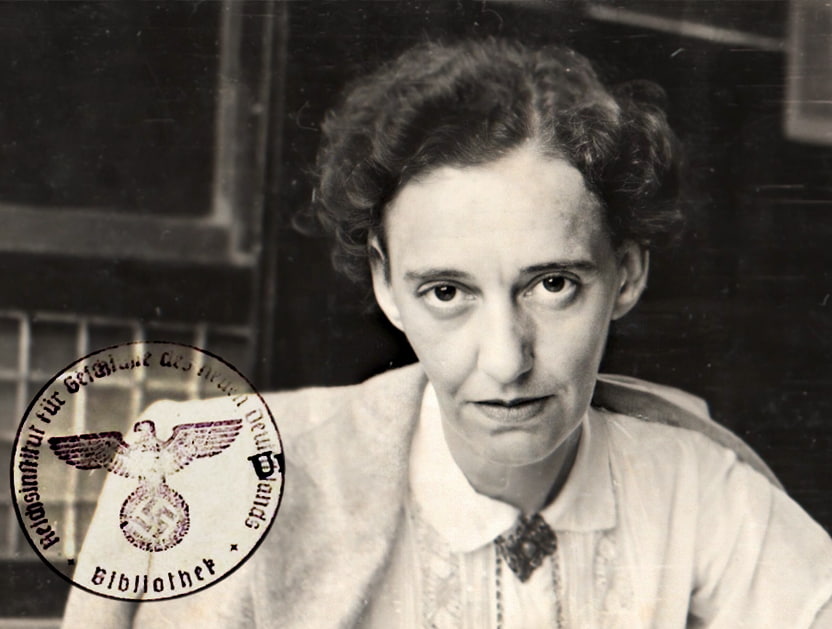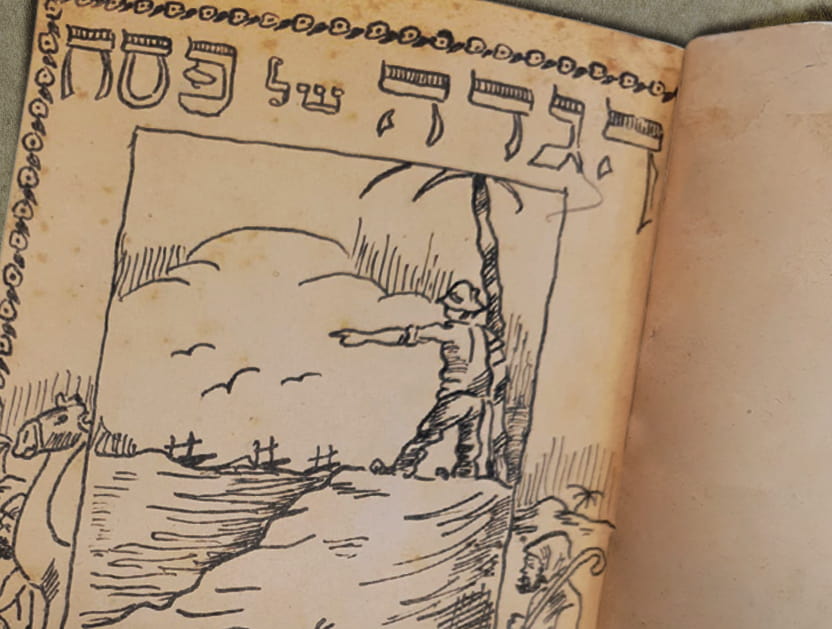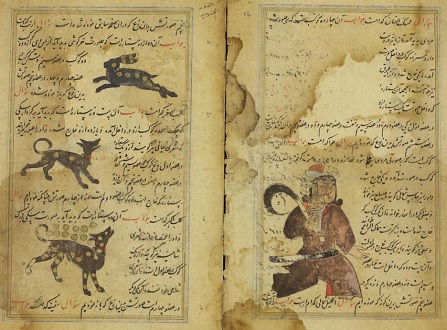Autobiographical interviews of Jews born in German speaking countries ("Yekkes") - 50/60 years after their immigration to Israel
להגדלת הטקסט להקטנת הטקסטShaul (Otto) Baumann was born in 07/03/1922 in Vienna. In 1934-1938 he completed “Gymnasium”. 1939 emigration to Palestine with Youth Aliyah. Attended an agricultural secondary school. Since 1943, he worked as agricultural planner in Israel and abroad. In 1982, he started university studies; for a year he got a grant at the University of Tuebingen; by the time of the interview he had just finished his Phd. ; Shaul Baumann's life: His father served as a soldier in World War I; later he had to stay repeatedly in hospital because of a disease he had contracted at the front. He was an active socialist and manager of a post office savings bank. Baumann's family lived in Brigittenau, Vienna where only a few Jewish residents lived. His father had good relationships with colleagues and neighbours. Shaul Baumann had contacts with other Jewish children only during Jewish religious instruction; he was very well accepted among his non-Jewish schoolmates. Baumann's parents came from Bukovina; despite of being socialists, they were loyal to the emperor (he got his name after emperor Otto von Habsburg). His father died when Otto was four years old. His mother did not understand why she was thrown out of her apartment the “Kristallnacht”, being the widow of a loyal soldier; their former friends did not help. Otto Baumann emigrated with Youth Aliya in 1939. His mother was deported to Minsk in 1941, he discovered where she is buried. - Flashback with more details: At the “Gymnasium” he started to feel increasing antisemitism, though National Socialism was still illegal. Sympathizers of Hitler Youth wore white stockings, there were members in his own class. Episode from a trip to Carnuntum: The four Jewish classmates were beaten up as “Gladiators” and the teacher tolerated it. Analysis of the the Austrian national movement, which dominated until 1938, and those who claimed a reunion with Germany. (In his opinion the fear of a National Socialist assumption of power was not only widespread among the Jews.) Episodes about first harassments of Jews. His mother worked as a milliner and feared for her widow's pension after the annexation. One day, a neighbor claimed their apartment. The housing office found them a new apartment in the Viennese “ghetto” Leopoldstad ; They had to leave all their furniture behind. Episode: While Otto transported their few belongings to the new apartment, he passed a poster with Rosenberg's “The Eternal Jew”. They moved two days before Otto's emigration on January 2, 1939. ; Because Shaul Baumann had studied Hebrew at the “Gymnasium”, he was able to communicate in Hebrew when he arrived in Palestine. He feels guilty because he left his mother behind - but she had absolutely wanted it and it was “normal” in this situation. He points out that some parents still could follow their children, but that the British gradually closed Palestine's borders. His immigration was already considered as a “humanitarian” exception for youths. First, he was sent to moshav Kfar Vitkin; his future wife lived in the neighboring moshav Kfar Haim (but he got to know her only after two years). Hanna Bauman had arrived illegally. - Description of Shaul Baumann's journey to Palestine together with the other children by train and ship, the relief they felt about their escape. They arrived in Tel Aviv and he was adopted by a family. He was educated in agriculture, language, Jewish history and religion. In the mornings he had to work, in the afternoons he went to school, he found this life exhausting. His feeling of being a social outsider disappeared only slowly. Gradually he started to identify with Zionism. Comments on the social disapproval of the German language and the social activities in his moshav in the evenings. After two years, the young immigrants founded a new agricultural settlement in the Negev. The young settlers collaborated with the Bedouins in the Negev, until those suddenly were stirred up against the Jews. Shaul Baumann stayed in the Negev for five years and started to feel like an Israeli. ; Shaul and Hanna Baumann's relationship to the German language and to Austria: Discussion about the responsibility for National Socialism in Austria. Baumann's ambivalent attitude towards the country of his childhood. He states that antisemitism remained after the War; there has never been an official invitation to the emigrants to return to Europe. About the long tradition of latent antisemitism before its radicalization. Comments on the fact that Germany started its compensation payments to Jews much earlier than Austria. Criticism of Kreisky who still claimed that Austria was a victim of National Socialism. Baumann considers Vranitzky's official apology as an important gesture. ; In 1972, the couple visited Vienna after Hanna was invited to her birthplace Oberhausen by city officials. Since then, she has repeatedly travelled to see her schoolmates. Shaul speaks German (Austrian dialect) only with his friends. Sometimes they hear German on TV. Shaul Baumann's dialect is mixed with Hebrew and standard German elements. The couple only speak Hebrew with each other. Hanna's mother survived the War, she was freed from Theresienstadt, but she never wanted to leave Germany. After two years in Germany, she regularly came to Israel to live with her children for one year. Baumanns' children know German from Hanna's mother. Hanna Baumann lost her father, sister and grandmother in the Holocaust. - The couple are still friendly with friends from their Youth Aliyah groups. Shaul Baumann thinks that it was easier them to keep their German language than for those immigrants who settled in villages and towns. Hanna Baumann's mother taught her grandchildren not only the German language, but also German songs, myths, etc. Hanna thinks that her children know German well and that they show some European behavior. One of their sons and the daughter and her husband are psychologists (partly working with the second generation of holocaust survivors). Their grandchildren are already grown-up, they do not know German. ; Shaul Baumann's work and late studies: 30 years of work as agricultural planner. Partly he worked in the Far East and in the Third World. He gave up work about ten years before the interview to do studies. His doctoral thesis is about the connection between antisemitism and religion. He got some grants in Germany, but no grant from Austria as a result of his advanced age. (tells an episode about the refusal). He thinks that Austria's lack of interest in the analysis of the past may have been justified during the period of occupation, but not in the present. About his review of a book by Sternberg concerning Austrian compensation payments.
| כותר |
Autobiographical interviews of Jews born in German speaking countries ("Yekkes") - 50/60 years after their immigration to Israel. |
|---|---|
| כותרים נוספים |
יהודים ילידי ארצות דוברות גרמנית - 50 שנה לאחר גירושם ועלייתם לארץ |
| יוצרים נוספים |
Baumann, Otto Strasser, Margareta OHD (interviewer) סטראסר, מרגרטה OHD (מראיין) Nirnberger, Clemens OHD (interviewer) נירנברגר, קלאמנס OHD (מראיין) באומן, שאול OHD (מרואיין) באומן, חנה OHD (מרואיין) Baumann, Hanna OHD (interviewee) באומן, אוטו OHD (מרואיין) המדור לתיעוד בעל פה של מכון המחקר ליהדות זמננו ע"ש אברהם הרמן באוניברסיטה העברית בירושלים (בעלים נוכחיים) |
| שנה |
1998 |
| הערות |
Includes short biography, questionnaire and topics of the interview. Complete audio and transcript המדור לתיעוד בעל פה של מכון המחקר ליהדות זמננו ע"ש אברהם הרמן באוניברסיטה העברית בירושלים (234)139 |
| מקום נוסף |
30. November 1998. |
| היקף החומר |
39 p. Playing time: 01:28:08 |
| שפה |
גרמנית |
| קרדיטים |
המדור לתיעוד בעל פה של מכון המחקר ליהדות זמננו ע"ש אברהם הרמן באוניברסיטה העברית בירושלים |
| מספר מערכת |
990044255220205171 |
בכל שימוש יש לציין את מקור הפריט בנוסח הבא:
המדור לתיעוד בעל פה של מכון המחקר ליהדות זמננו ע"ש אברהם הרמן באוניברסיטה העברית בירושלים
תנאי השימוש:
למחקר, לימוד והוראה
מותר להעתיק את הפריט ולהשתמש בו למטרות של לימוד עצמי, הוראה ומחקר בלבד.
מותר להעתיק את הפריט ולהשתמש בו גם למטרות הוראה ומחקר מסחריות.
חובה להעניק קרדיט ליוצר/ים בכל שימוש בפריט.
אסור לפגוע בכבודו או בשמו של היוצר באמצעות סילוף או שינוי של היצירה.
אין צורך לפנות לספרייה הלאומית לקבלת רשות שימוש למטרות לימוד עצמי הוראה ומחקר.
שימוש שאינו ללימוד עצמי, הוראה ומחקר, מותנה בקבלת הרשאה מבעל זכויות היוצרים בפריט ו/או מבעל האוסף. לא נדרש אישור נוסף מהספרייה הלאומית.
ניתן לפנות לספרייה הלאומית לקבלת פרטי הקשר של בעל זכויות היוצרים/בעל האוסף: טופס בקשה לבירור זכויות יוצרים
מידע נוסף:
הפריט כפוף לזכויות יוצרים ו/או לתנאי הסכם.
תנאי השימוש נקבעו בהסכם עליו חתמה הספרייה הלאומית.
אם לדעתך נפלה טעות בנתונים המוצגים לעיל או שקיים חשש להפרת זכות יוצרים בפריט, אנא פנה/י אלינו באמצעות טופס בקשה לבירור זכויות יוצרים
תצוגת MARC
יודעים עוד על הפריט? זיהיתם טעות?

 כניסה עם גוגל
כניסה עם גוגל
 כניסה עם פייסבוק
כניסה עם פייסבוק




